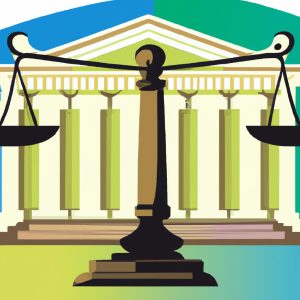When it comes to the venerable notion of owning a place to call home, ensuring that property rights are legally validated is a paramount concern for both homeowners and practitioners of the law alike. Understanding the crucial document that unequivocally proves home ownership is not only prudent but essential in navigating the intricate landscape of real estate law. In this article, we will explore the foundational document that serves as the bedrock of property ownership, shedding light on its significance and implications. Join us as we delve into the realm of real property law, unraveling the mystery behind the document that solidifies one’s claim to the cherished concept of home ownership.
Understanding the Importance of Deeds in Establishing Home Ownership
When it comes to establishing home ownership, one document reigns supreme: the deed. A deed is a legal document that proves ownership of a property and is essential in the transfer of real estate. Without a deed, there is no concrete evidence of ownership, leaving the property’s status in limbo.
Deeds play a crucial role in the home buying process as they provide clarity and security to both buyers and sellers. In addition to proving ownership, deeds also outline the rights and responsibilities associated with the property. Understanding the importance of deeds is essential in safeguarding your investment and ensuring a smooth transfer of property.
Different Types of Deeds and Their Legal Implications for Homeowners
When it comes to home ownership, one of the most crucial documents that homeowners should be familiar with is a deed. Deeds are legal documents that transfer ownership of a property from one party to another, and there are various types of deeds that come with different legal implications. Understanding the different types of deeds can help homeowners protect their property rights and navigate any potential legal issues that may arise.
Some common types of deeds include warranty deeds, quitclaim deeds, and deeds of trust. Each type of deed carries its own set of legal implications, such as guarantees of title, limitations on warranties, and the ability to secure a loan with the property as collateral. Homeowners should carefully review their deed and consult with legal professionals, like the experienced attorneys at Morgan Legal Group in New York City, to ensure that they fully understand their rights and responsibilities as property owners.
Navigating Property Titles and Liens: Ensuring Clear Ownership Documentation
When it comes to proving home ownership, there are several documents that can serve as clear evidence of ownership. These documents are crucial in ensuring that the ownership of a property is properly documented and legally recognized. Here are some key documents that can be used to prove home ownership:
- Deed: The deed is a legal document that transfers ownership of a property from one party to another. It contains the names of the current owner and the new owner, a legal description of the property, and the signature of the current owner.
- Title Insurance Policy: A title insurance policy is a type of insurance that protects the homeowner in case there are any defects in the title. This policy serves as proof of ownership and provides protection against any challenges to the ownership of the property.
- Property Tax Records: Property tax records are official documents that show the ownership of a property and the amount of property taxes paid. These records can be used as evidence of ownership in case of any disputes.
| Document | Function |
|---|---|
| Deed | Transfers ownership |
| Title Insurance Policy | Provides protection |
| Property Tax Records | Show ownership |
Consulting with Experienced Real Estate Attorneys for Comprehensive Home Ownership Verification
When it comes to verifying your home ownership, consulting with experienced real estate attorneys can provide comprehensive assistance in ensuring the validity of your property rights. These legal professionals have the knowledge and expertise to review all necessary documents and conduct thorough research to confirm your rightful ownership of the property in question.
Some key documents that can serve as proof of home ownership include:
- Deed: This legal document proves the transfer of ownership from the seller to the buyer.
- Property Tax Records: These records show that you are listed as the owner of the property for tax purposes.
- Homeowners Insurance Policy: This policy typically lists you as the insured party, indicating your ownership of the property.
Q&A
Q: What document proves home ownership?
A: The most commonly used document to prove home ownership is the deed to the property.
Q: How do I obtain a deed to my property?
A: Deeds are typically filed with the county recorder’s office where the property is located. You can request a copy of your deed from this office.
Q: Is there any other document that can prove home ownership?
A: In addition to the deed, property tax records, mortgage documents, and title insurance policies can also serve as proof of home ownership.
Q: What should I do if I can’t find my deed?
A: If you cannot locate your deed, you can request a copy from the county recorder’s office or contact the title company that handled the closing of your property purchase.
Q: Can I use a real estate agent to help me obtain proof of home ownership?
A: Real estate agents can help you access property records and obtain copies of relevant documents, but ultimately, it is your responsibility to keep track of important ownership documents.
In Conclusion
In conclusion, having the right document to prove home ownership is crucial for safeguarding your property rights. Whether it’s a mortgage deed, title deed, or property tax bill, make sure you have a copy in a safe place so you can easily prove ownership if needed. By understanding the importance of these documents, you can ensure that your home remains secure and protected for years to come. Thank you for reading!




